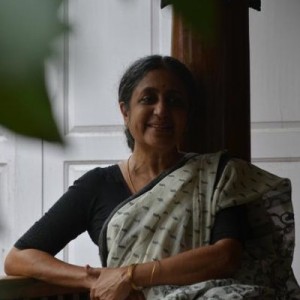-
Advocacy Theme
-
Tags
- Abortion
- Adoption
- Caregiving
- CEDAW
- Disability
- Domestic Violence
- Domestic Workers
- Harassment
- Healthcare
- Housing
- International/Regional Work
- Maintenance
- Media
- Migrant Spouses
- Migrant Workers
- Muslim Law
- National budget
- Parental Leave
- Parenthood
- Polygamy
- Population
- Race and religion
- Sexual Violence
- Sexuality Education
- Single Parents
- Social Support
- Sterilisation
- Women's Charter
Roundtable Discussion: Gender in Indian Scripture
February 6th, 2013 | Events, Gender-based Violence, News

Feminine Protests in the Ramayana and Mahabharata
Ahalya draupadi sita tara mandodari tatha
Panchakanya smarennityam mahapatakanasanam
To this day, Indian children may hear their grandmothers recite this stanza devoutly every morning. The stanza utters the names of five prominent female characters in Indian tradition. These are the women of the puranas, or ancient Indian literature. Yet none of them fit the archetype of the submissive wife who walks in her husbands footsteps, head lowered and eyes to the ground. Each of them, perhaps with the exception of the demon, or rakshasa queen Mandodari, has either transgressed or been accused of transgressing the conventional ideas of pativratya (chastity).
We assume that the modern day woman is much more assertive and challenges the norm much more readily than her ancestors. All the talk of women being the keepers of social morality and traditional values, and suffering every oppression in silence so that the family remains intact, has blinded us to what the women in the epics actually said and did. We have been brainwashed by the depictions of puranic women in television soap operas which portray them as submissive, long-suffering icons. But a close reading of the classic texts will tell us that they are very self-assured and aware of their rights, and vocal about it too. Be it Sita and Mandodari in the Ramayana or Kunti and Draupadi of Mahabharata, they dare to question and protest injustice against women. They are not just women from the epics, they are epic women. Let us examine their lives and their transgressions.
EVENT DETAILS
Date: 19 February 2013, Tue
Time: 7.30pm-9.30pm
Venue: AWARE Centre Block 5 Dover Crescent #01-22 Spore (130005)
Chair: Ms. Sunita Venkataraman
About the speaker:
Leading translator and acclaimed Sanskrit scholar Prema Jayakumar was born and raised in Kerala. She went to school in Kochi and Bangalore, graduating with an M. A. in English. After 20 years of working for the State Bank of India as a probationary officer, she quit and followed her dream of telling stories. Some of her more notable published works include Wind from the Hills, which was shortlisted for the Crossword award 2008 and featured on the long-list for the Golden Quill Award; Yakshi, picked by BBC for their Off the Bookshelf programme; and Pandavapuram, which inspired a Bengali movie. Also a literary columnist for the Mathrubhumi Weekly and literary reviewer for Indiavision and the New Indian Express, she does translations of short stories, poems, articles and reviews from Malayalam to English. She has written 5 books on mythology for children, and a key area of expertise includes looking at Indian Mythology from a gendered perspective.
Please register for the event here or send email to Pam at publiceducation@aware.org.sg.



